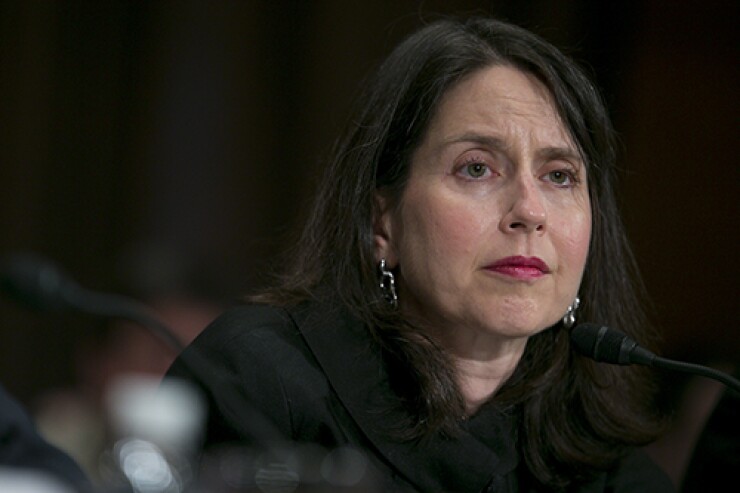
Following industry suggestions that robo advisors may be violating investment laws, SEC Commissioner Kara Stein is publicly questioning whether a fiduciary duty applies to automated advice – and whether existing laws should be revised to account for the digital wealth management platforms.
“The commission is now challenged with thinking through what it means to regulate a robo advisor,” Stein told an audience at Harvard Law School this week in a lecture sponsored by Fidelity. “This concept did not even exist when most of the laws applicable to investment advisers were drafted.”
A
While Stein did not reference that report, her questions touched upon its main thrust: that robos do not provide personalized investment advice, do not minimize investment costs, are not free from conflicts of interest, do not meet a high standard of care, do not act in a client's best interest, exclude ERISA accounts and do not meet the Department of Labor's proposed best interest contract as part of a fiduciary standard.
“What does a fiduciary duty even look like or mean for a robo advisor?” Stein asked the audience rhetorically.
CONCERNS OVER ‘ROBOTIC ENTITY’
“The idea of a robotic entity that automatically generates investment advice certainly bumps up against what we would traditionally think of as a fiduciary. As this innovation gains more market share -- as it seems poised to do -- we should be asking whether these new robo advisors can be neatly placed within our existing laws.
"Or, do we need certain tweaks and revisions? Do investors using robo advisors appreciate that, for all their benefits, robo advisors will not be on the phone providing counsel if there is a market crash?”
Fein, author of
"It’s recognition that there are fiduciary issues raised by the new robo advisor technology, as it were," Fein said. "I'm glad she and presumably others at the SEC are aware of these issues and are thinking about them."
Fein added it was a "positive development. … I'm not the first one to point that out. I certainly don't take any credit. It's definitely something that they will need to address sooner or later."
Betterment, the leading independent robo advisor, said it was in compliance with investment law.
"At Betterment, we hold our fiduciary responsibility with the highest regard," said Betterment spokesman Joe Ziemer. "We've gone to great lengths to build our platform from the ground up, ensuring that we are fully aligned with our customers and clear in the value we offer."
Read more:





